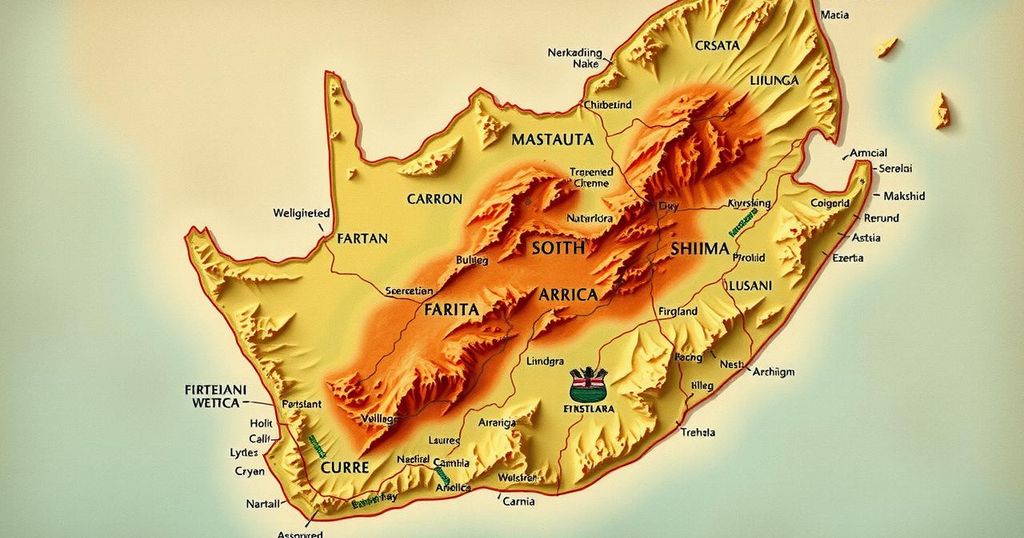Trump Welcomes Afrikaners as Refugees Amid Controversy Over Immigration Policy

President Trump makes an exception in U.S. refugee policy for white South Africans from the Afrikaner ethnic group, citing racial discrimination as a primary concern. Approximately 60 Afrikaners are set to arrive shortly as other refugee admissions are paused. The move has sparked controversy, with South African officials disputing the claims made by the U.S. government.
In a surprising move, President Donald Trump has declared his support for white South African refugees, specifically targeting the Afrikaner group, as he halts the general U.S. refugee admission program. Trump claims these individuals have faced significant discrimination. Approximately 60 members of the Afrikaner ethnic group are expected to arrive in the U.S. on May 12 as part of this initiative, marking the first group to benefit from this exception in the refugee policy.
Historically, the Afrikaners are descendants of the Dutch colonists who ruled South Africa during the notorious apartheid era, which enforced racial segregation until its end in 1994. This system denied basic rights to the majority of the population, particularly Black South Africans, forcing many people into ethnic Bantustans. Currently, white South Africans represent a minority in the nation, often asserting that new legal measures make them targets of racial discrimination. Recently, the South African government enacted the Expropriation Act, permitting land seizures in the name of public interest.
Trump’s stance on this matter intensified following the introduction of the Expropriation Act, an initiative he accuses the South African government of using to unfairly take land from its white citizens. During his presidency, Donald Trump has frequently expressed solidarity with the Afrikaners. “What’s happening in South Africa fits the textbook definition of why the refugee program was created,” commented Stephen Miller, a deputy chief of staff at the White House during a press briefing on May 9.
Elon Musk, a Trump adviser and South African native, has openly criticized the Expropriation Act, which emphasizes the unrest surrounding land ownership issues in South Africa. In February, Trump asserted his commitment to aiding the Afrikaners by signing an executive order to facilitate their resettlement in the U.S. This move came after he suspended refugee admissions shortly after taking office, with a considerable focus on the Afrikaners being treated poorly.
While Trump and his advisors have framed the situation as a case of race-based persecution, the South African President, Cyril Ramaphosa, disputes these claims. Ramaphosa argues that measures like the Expropriation Act are essential for repairing the inequities created during apartheid. According to a 2024 study conducted by The Africa Institute and the University of Zambia, a typical Black South African household possesses only about 5 percent of the wealth found in a typical white household.
In response to Trump’s comments, South Africa’s Ministry of International Relations released a statement declaring the allegations of discrimination as “unfounded.” The ministry also criticized the political motivations behind the U.S. resettlement program. “It is most regrettable that it appears that the resettlement of South Africans to the United States under the guise of being ‘refugees’ is entirely politically motivated,” the statement read.
As the anticipated arrival date approaches, tensions continue to build. According to the Washington Post, Afrikaners are set to land at Dulles International Airport in a state-sponsored event, including a ceremonial news conference. Meanwhile, the State Department has remained tight-lipped about the precise number of refugees arriving the first wave, stating only that interviews are ongoing at the U.S. Embassy in Pretoria, South Africa.
In summary, the Trump administration’s focus on Afrikaners as refugees marks a significant shift in U.S. immigration policy amid ongoing racial tensions in South Africa. While approximately 60 Afrikaners are slated to arrive soon, their status as refugees is under scrutiny, amidst allegations of political motivations. As South African officials dispute claims of racism and discrimination, the unfolding situation highlights a complex intersection of race and international relations.
Original Source: www.usatoday.com







